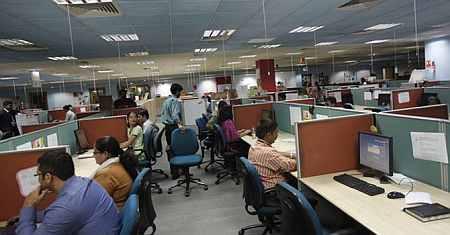Startups should not use react if they want to be acquired
119 nbmh 10 hrs 40
https://medium.com/@raulk/if-youre-a-startup-you-should-not-use-react-reflecting-on-the-bsd-patents-license-b049d4a67dd2
http://news.ycombinator.com/item?id=15060782
Note 1: Updated on August 19th to add clarifications where needed.
Note 2: August 20th 13.00 BST— please don’t turn this into a flamewar. Open Source Software has a >30 year history, and Facebook appears to be leveraging it as an instrument for their private benefit.
Note 3: August 20th 19.00 BST — I’ve received comments from individuals associated with the React universe. Contrary to them, I have no vested interest in one frontend framework or another. I am a backend engineer, not a frontend guy. As a result, I’m neutral and unbiased in this sense. I am not attacking the technology — I’m just providing my view on Facebook’s stance and its impact.
Note 4: August 20th 21.20 BST — Since data speaks louder than words, I compiled a list of ~35 companies along with their most popular Open Source projects (75+ in total), grouped by the licenses they use. Facebook is nearly alone in the use of this license. Here is the article. Judge for yourself.
What’s currently happening in the Open Source community is disheartening. Especially when you realise that many startups and businesses exist thanks to Open Source; as they wouldn’t be viable if they had to pay the prohibitive license fees of proprietary software.
Open Source is about creating communities to build better software together. It should never be used as a marketplace to exchange people’s rights — like Facebook is intending.
Facebook is pushing a licensing model called “BSD + patents” in all their projects, including the wildly popular React.
“BSD + patents” essentially means that the code is open (for everyone to see and use), but it’s always copyrighted by Facebook. And they grant you a patent license as long as you’re nice to them by never suing Facebook for patent infringement.
The instant you sue Facebook, your patent rights for React — and any other Facebook ‘open source’ technology you happen to use) — are automatically revoked.
Adios, bye bye, they’re gone!
https://github.com/facebook/react/blob/b8ba8c83f318b84e42933f6928f231dc0918f864/PATENTS
This issue was brought to public attention by the Apache Software Foundation.
It doesn’t matter whether the intellectual property is related to the domain you’re using React for, or not.
If you use React, you cannot go against Facebook for any patent they hold. Full period.
In other words: quid pro quo.
Facebook, is that what you think Open Source is about?
For the sake of illustration, say you’re a fridge company “Fridgebook Inc.” who markets intelligent fridges. Your fridges have a screen that runs your proprietary application, and you use React for the UI.
Overnight, you hear that Facebook decides to move into the fridge industry, and they’ve announced the worldwide launch of their new product: “FBfridge”, in just 1 week.
In the hypothetical case that Facebook blatantly infringes some of your patents with ‘FBfridge’, what can you do?
Well, you cannot sue them immediately. You’re using React on the customer-facing app, remember?
If you sue them before migrating to something else (like vue.js), you will immediately lose the license grant for React, and suddenly you’re in breach yourself, fighting against a potential lawsuit for illegal use of software, from an almost-$500-billion company, all by yourself.
And obviously, you don’t want to interrupt customer service.
So if you want to sue them, or at least hold any leverage for doing so, you will need to find a solution migrate away from React in record time.
That’s quite a pickle you’re in, right? It’s almost an extortionary situation. The solution? Not using React in the first place, and retaining your liberty to assert your rights.
NOTE: I am not an proponent nor an opponent to patents myself. I don’t have a clear stance on the issue. I’m just analysing the give-and-take balance here.
The last time I looked, the philosophy of Open Source revolved around communities where talented people contribute their grain of sand to — together — build better software and push tech even further.
That’s the spirit of the Apache Software Foundation, the Linux Foundation, etc. who are key references in the Open Source sphere.
Facebook has released an official explanation, which I’ll summarise for you in a few words:
Facebook receives a large number of meritless patent claims. They waste lots of resources fighting them. So they decided to capitalise on the success of their Open Source projects (like React) to introduce a trojan horse to deter users from filing — theoretically meritless — patent claims against them. They do not reciprocate this restriction.
But here is the important part. They claim that every other company that releases Open Source software should do the same.
Unfortunately, this is not going to work, and would eventually lead to a closed-source industry again, for several factors:
It requires consensus across the largest players in the market, who hold real arsenals of patents as leverage against competitors (see image below). Suddenly those arsenals would be valued at $0.
Arriving to that consensus is highly improbable. As long as one rogue company doesn’t join, the rest will need to keep “their guards/patent arsenals up”.
If all giants agreed to open source under the “BSD + patents” scheme, cross-adoption would grind to a halt. Why? If Google released Project X under “BSD + Patents”, and Amazon really liked it, rather than adopting it and losing their right to ever sue Google for patents, they would go off and build it on their own.
That would mean that communities will not form around these products. Communities are the fuel and the incentive for open sourcing products. If there is no chance of igniting a community, there is no reason to open source.
Eventually, as the above situation happens over and over again, the giants will stop seeing value in open sourcing their products, and the industry would eventually fall into a closed-source model.
(2012) http://www.droid-life.com/2012/01/24/web-of-tech-patent-lawsuits-infographic/
Patents protect ideas and inventions. In most cases, patent assertion cases are not black or white — win or lose. Infringement evaluation is complex and costly. A lawsuit can cost hundreds of thousands or millions to file and pursue. You might have a 85% confidence that FB violated a patent of yours, but to even pursue it it’s going to cost you a lot of money.
If on top of that, you will need to invest to migrate away onto a different frontend framework first, and make sure that all your customers are using your new product version (what if you’re using React Native? your users may not upgrade the apps at once!), before you can even file the lawsuit, do you think that’s an honest, ethical usage of open source philosophy?
Bottom line:
Open Source is not a “quid pro quo” trade. Open Source is about creating communities to build better software together. It should never be used as a marketplace to exchange rights.
If you’re building a startup, I’m assuming you — and your investors — are hoping to land a million-dollar worth exit at some point, right?
You want to keep your door open to all acquirers, especially the large ones: Apple, Microsoft, Google, Amazon, etc.
These companies likely hold patent arsenals against Facebook — and even if they didn’t — they don’t want to surrender their rights to sue Facebook if the time came.
If your product is built on React, acquiring you means losing these rights, and this is something they are probably not prepared to do.
Basically, potential buyers will not touch you with a ten-foot pole, if buying you means they have to surrender their rights to ever sue Facebook for patent infringement.
So if you want to keep your options open…
I particularly like Preact, but I’m not sure if Facebook holds any software patents on the Virtual DOM or the React APIs.
If they did, Preact could be in violation of those patents, so have a look at vue.js, cycle.js, too.
I hope at some point the community can clarify where Preact and Inferno (another light-weight alternative to React) in terms of intellectual property.



